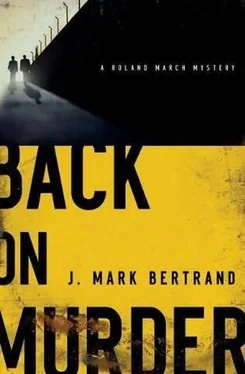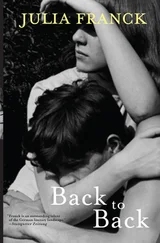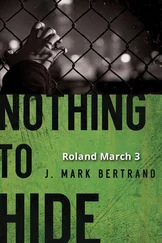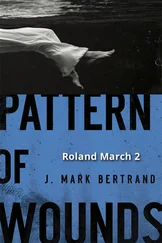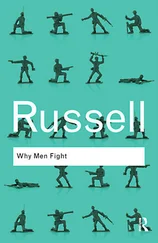“What was that?”
“A soft white cellophane-wrapped package. I don’t know what it was, but it looked like drugs to me. Cocaine, whatever. I don’t have any firsthand experience of that stuff. But I figured he was using again.”
“Did you confront him?”
“Not about that.”
“But you did confront him about something?”
She nods, then coughs back a fresh flow of tears. “You mentioned the art. Well, it was a therapist who put him up to that, before we got back together, and he really took it seriously. Rented a studio at this place over in Montrose, and he’d spend hours over there, sometimes all night, working on his sculpture.” Her mouth wrinkles at the corner. “I know nothing about art of course, but it wasn’t anything I’d call artistic, just globs of clay and all these faces that looked like they could’ve been made by a kid. I mean, the man can’t draw a picture to save his life, so I don’t know what kind of artist he could really be.” She pauses, thinking over the words. “But it made him happy, so…”
“You were saying you’d confronted him?”
Again with the nods. “Like I said, he reverted back to his old self, and the way he was when I left him, and that first time the problem wasn’t just the substance abuse. It was the other women. Don’t get me wrong, when I married him I already knew he was a bit of a stray dog, you know? But that was then. I expected him to put that stuff behind him, and when he didn’t, that was it for me. I couldn’t trust him. So my first thought when all this happened was, he’s seeing somebody. And there’s this cute little thing down at the studio, the girl who rented the space across from his.”
“You thought they were having an affair?”
“An affair?” She smiles at the quaint term. “You could say that, I guess. But when I brought it up, he denied everything. He said it was just trouble at work. And I… it sounds crazy, but I wanted to believe him. I wanted more than anything to be wrong because what we had, I didn’t want to lose it again. You can’t possibly understand how special he was to me, all the plans we had, the way we could be together.”
She doesn’t cry or convulse with grief. She’s talking about him now like he’s ancient history, like the news of his death came to her years before.
“You said the past couple of days, things were back to normal?”
“Yeah,” she says, wrapping her arms around herself. She looks down, noticing the shirt she’s wearing, pulling the fabric up for inspection. She sniffs the sleeve, then lets out a small but terrible sigh, smelling his scent and realizing how soon it will fade.
The conventional wisdom is, when a suicide makes his final decision, a sense of peace follows. He loses interest in the everyday world, and as a result becomes capable of beautiful gestures. Taciturn men suddenly confess to acquaintances how much their casual encounters have really meant over the years. Treasured objects are given away as the suicide divests himself of things which now mean nothing.
Stephanie Thomson’s description of her husband’s rebound doesn’t quite fit the pattern. After a dry spell, they’d been “intimate” again – her word – and he’d apologized for being distant. Things would be better from now on, he said. They were even looking for a house.
“But I knew it couldn’t last.”
“Why not?” I ask.
“I got a phone call,” she says. “A really strange one, out of the blue. Some guy acting all friendly, asking questions about Joe, saying he wanted to get in touch with him. It was trouble, I could feel it. There was something creepy about him.”
“Did he give you a name?”
She shrugs. “If he did, I don’t remember. I got scared, though, thinking maybe it was connected to the drugs in his bag or something.”
The truth dawns on me. “This call, did you tell Joe about it?”
“No,” she says. “I called Tony and he said he would take care of everything. He told me not to worry.”
“Tony?” My pulse races. “You mean Antonio Salazar?”
She nods calmly, the most natural thing in the world. “They work together on the same squad. They’ve been friends for years. Tony’s always looked after Joe. Even in the bad days, he tried to get me to stick it out for Joe’s sake, that’s the kind of friend he is. This… this is going to just devastate him.”
I sit back on the couch, suddenly weary. So the day after I visit Salazar’s office, hoping to touch base with Thomson, Stephanie calls Salazar, telling him about my conversation with her. The next day, some random Latino banger dangling information on my case tries to punch holes in me. And early the next morning, Joe Thomson is dead, apparently by his own hand.
She sits there glumly in her chair, shaking her head at the pain her husband’s death will cause Tony Salazar, and I want to grab her by the shoulders and shake her. I want to slap the frown off her face. You did this. It was you. He’s dead because of you. But I might as well slap myself. It’s not Stephanie Thomson’s fault. What she did made perfect sense, just trying to protect her man against himself. I’m the idiot. Yet again. If I’d just been patient, everything would have turned out right. If I’d let Thomson come to me, given him time to be discreet. Instead, desperate to make something happen, I’d blundered into the lair of Keller and Salazar, fatally tipping my hand.
I hadn’t just missed my last chance. I’d gotten him killed.
Stephanie hands over the keys to Thomson’s studio, along with the address and a hand-drawn map, just as her sister arrives, prompting a new outpouring of grief. I find Bascombe outside on the landing, sheltering from a percussive bout of rain.
“Give me sunshine any day,” he says.
In the car, I can tell he’s got something on his mind, but asking what would be the equivalent of sticking my finger in a trap. No thanks. I’d like to go straight over to the studio – given how clean the apartment was, I can’t help thinking the studio is where Thomson kept his personal files, and maybe that duffel bag his wife mentioned – only the first order of business is unloading the lieutenant. I don’t want him over my shoulder for every step of the investigation.
At this point, Thomson’s suicide looks perfectly straightforward. If I suggest otherwise to Bascombe or anyone else before I can actually prove it, the only thing I can be sure of is my removal from the case. Once I’m alone, the first order of business will be a call to Wilcox. The longer I can keep him quiet, the more likely it’ll be to make headway.
“So what did she have to say?” Bascombe asks.
I give him a rundown, omitting my call and the note now residing in my pocket. I also downplay the studio, omitting reference to the keys now in my possession.
“He had cocaine in his bag?”
“It might have been coke. She couldn’t be sure.”
“How much?”
“One package, she said.”
The news makes him restless. He shifts in the seat, fiddles with the air-conditioning vents, raps his knuckles in rhythm against the window. Whatever information he’s holding, it’s clearly dying to get out.
“What?” I ask, knowing I’ll regret it.
He jumps on the question. “That call I just took? That was from a friend of mine over in IAD. You know what he told me?”
My heart takes a break, leaving the blood to settle in my veins. Yes, I know what he told you. He said I’d been wrangling for a deal, using my ex-partner as a go-between, trying to get a blanket immunity to open Thomson’s lips. He said whatever was going on here, I’m hip-deep in it and the first thing for the lieutenant to do is pull me off the case.
But Bascombe volunteers nothing. He wants me to earn it.
Читать дальше
